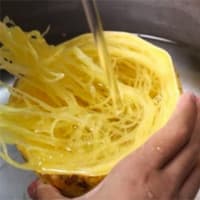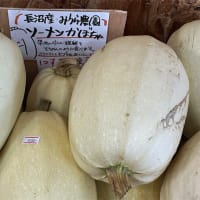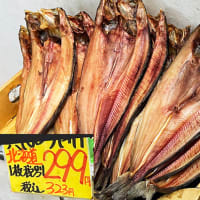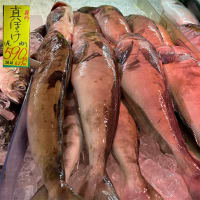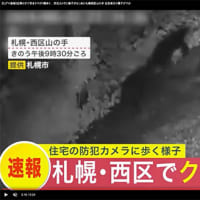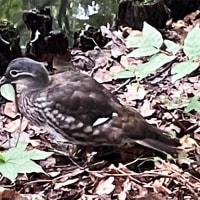

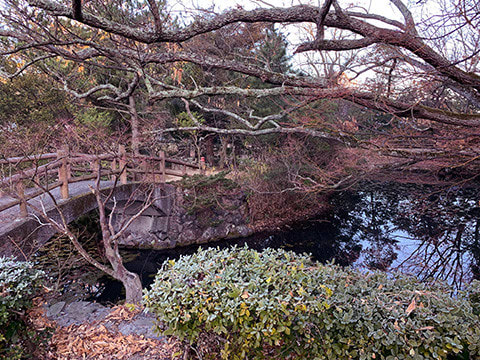
源平合戦というのは政治の主導権争いがそのまま武力戦争になった事態。
弥生時代以降、吉野ヶ里の逆茂木の様子をみればわかるように
わかりやすい「富の集中」が高倉倉庫などで目に見えるかたちになってから、
この列島社会で常に戦争は日常化していった。
吉野ヶ里では柵の中で集住した支配層が、農耕機具を含めた鉄器管理を行った。
当然かれらは武器も含めた製鉄の生産システムも管理していた。
日本史である時期まで日本権力層が朝鮮半島の政治情勢に深く関与したのは
この鉄の生産の原材料が朝鮮半島に依拠していたからとも言われる。
それが白村江の敗戦以降、日本国内で本格的に製鉄が行われるようになって
結果として朝鮮半島への依存度が低下して行ったという説が強い。
農業生産と製鉄は密接に関係する。製鉄システムを掌握する開発地主たちは
自らの権益を保守拡大するために武器生産も強化拡大していった。
この源平合戦時期は全国での耕地面積の拡大があって
在地開発地主たちは京都の政治権力を利用して自ら開発した土地を守るとともに
隙あらば常に隣接する土地への侵略の口実を探していた。
折から源平合戦期は未曾有の干ばつ被害が列島を襲った。
社会不安要素が強かったので各地蟠踞の源氏方は蜂起したともいえる。
かれらにとって領地の拡大がすべてであり源平のどちらが勝つかは関係ない。
ただ勝つほうに肩入れしてそこで自己アピールを強くすることが
そのまま領地争いにおいて有利になるのが基本。
かれらにとって「名を上げる」が直接利益であり勝つ側に付くことは最重要。
そういう状況から、戦争現場では「勢い」で一気に決着がつく。
勝ちそうだ、となったら一気に雌雄が決するというのが自然。
そういう心理を後の足利尊氏は最大利用したとも言われる。
上の図は屋島合戦の絵巻から、義経の「弓流し」。
義経は五条の橋での弁慶との立ち回りとか平家との最終決戦の壇ノ浦での
八艘飛びなどの逸話が残っているほどに軽快な動作の人物。
ということは腕力は非力だったよう、膂力の要求される弓の強さでは
その非力ぶりがあきらかになる危険性があって、
もし敵がそのことを知ったら悪宣伝に利用されることが必至。
案の定、敵大将の弱そうな弓を宣伝証拠としてゲットしようとした平家方。
そういう要素が戦争の勝敗にも係わると考え乱戦中のなか、
危険を顧みず海中に落ちた非力な自分の弓を義経は回収したのだという。
また下写真は屋島の「血の池」。戦闘後刀を洗ったら池全体が真っ赤になった。

<『前賢故実』河野通信〜みちのぶ〜画像(江戸期、菊池容斎画)Wikipediaより>
四国伊予武士団の河野家、河野通信はこの源平合戦期に源氏方として挙兵した。
この屋島では海戦に移行した段階で義経軍に舟を提供したともいわれる。
のちにこの家系が四国各地に分枝し、さらに播州恋ヶ浜・英賀にその一統が
領地を築いて播州三木氏になる。わたしの家系ではそのような伝承がある。
自分の勢力範囲を拡大させるのに、中央での政治闘争を利用したのでしょう。
今日の「企業努力」と大して変わらないマインドだと思える。
この時代には経済競争ではなく剥き出しの戦争が人生の成功、欲望の実現手段。
在地武士たちの思惑と冷徹な勝敗を見る目。
そのことに気付くリアリズムを平家は失っていたのでしょう。
English version⬇
[Armed government struggle and local samurai class Shikoku / Yajima-5]
The Genpei War is a situation in which the battle for political leadership has become an armed war.
As you can see from the state of the abatis in Yoshinogari since the Yayoi era
Since the easy-to-understand "concentration of wealth" became visible in Takakura warehouses, etc.
There is no doubt that war has always become commonplace in this archipelago society.
In Yoshinogari, the ruling class who lived in the fence managed ironware including farming equipment.
Naturally, they also managed the steel production system, including weapons.
Until the time of Japanese history, the Japanese power was deeply involved in the political situation on the Korean Peninsula.
It is also said that the raw material for this iron production relied on the Korean Peninsula.
After the defeat of Baekgang, ironmaking began in earnest in Japan.
As a result, there is a strong theory that the dependence on the Korean Peninsula has decreased.
Agricultural production and steelmaking are closely related. The development landowners who control the ironmaking system
Weapon production was also strengthened and expanded in order to maintain and expand its own interests.
During this Genpei War, the area of cultivated land expanded nationwide.
Local development landowners use the political power of Kyoto to protect the land they have developed
I was always looking for an excuse to invade the adjacent land if I had a chance.
It is said that unprecedented drought damage struck the archipelago during the Genpei War.
Since there were strong factors of social unrest, it can be said that Genji of the 蟠踞 in various places uprised.
For them, the expansion of the territory is everything, and it doesn't matter which of Genpei wins.
However, it is possible to put your shoulders on the winning side and strengthen your self-appeal there.
It will be the basis that it will be advantageous in the territorial dispute as it is.
For them, "making a name" is a direct benefit and it is of utmost importance to be on the winning side.
From such a situation, at the scene of the war, "momentum" can be settled at once.
It is common sense that males and females will be decided at once when it seems to win.
It is said that Takauji Ashikaga later made the most of such psychology.
The figure above is from Yoshitsune's "Yoshitsune" from the picture scroll of the Battle of Yashima.
Yoshitsune went around with Benkei at Gojo Bridge and at Dannoura in the final battle with the Heike.
A person with such a light movement that anecdotes such as eight-legged flight remain.
It seems that it was weak in strength, and in the strength of the bow that requires strength
There is a danger that the weakness will be revealed,
If the enemy knows that, it will surely be used for bad publicity.
Sure enough, Heike tried to get the weak bow of the enemy general as proof of promotion.
In the midst of a turbulent battle, thinking that such factors are related to the victory or defeat of the war,
It is said that Yoshitsune recovered his powerless bow that he had dropped into the sea without regard for danger.
<"Zenken Kojitsu" Kono Tsushin-Michinobu-Image (Edo period, Kikuchi Yosai painting) from Wikipedia>
The Kono family of the Shikoku Iyo Bushidan, Kono Tsushin, raised troops on the Genpei side during the Genpei War.
It is said that this Yajima provided a boat to the Yoshitsune army at the stage of transition to naval warfare.
Later, this family branched to various parts of Shikoku, and the lineage was further established in Banshu Koigahama and Eiga.
Build a territory and become Mr. Banshu Miki. There is such a tradition in my family.
Perhaps he used a central political struggle to expand his reach.
It seems that the mindset is not much different from today's "corporate efforts."
In this era, bare war, not economic competition, is the means to succeed in life and realize desires.
Eyes to see the speculation of the local samurai and the cold victory and defeat. Heike would have lost that realism.











